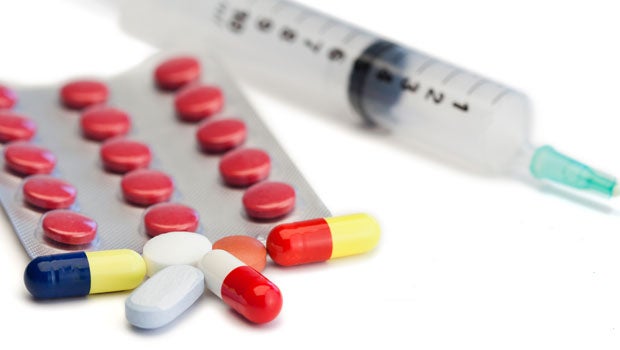
With antibiotic resistance, we seem to find ourselves back in pre-penicillin days when people may die even from a simple infection gotten from a scratch.
By Sarah Tang, Specialist Pharmacist
SGH Antibiotic Stewardship Unit

Image: University of Pennsylvania
During World War II, penicillin - one of the world’s first antibiotics - was the miracle drug, a “revolution in treatment”, that gave thousands of soldiers back their limbs and the life-saving chance to return home to their family.
Fast-forward 70 years, we seem to find ourselves back in pre-penicillin days when people may die even from a simple infection gotten from a scratch.
Antibiotic resistance is real and already happening
Excessive antibiotic use has caused bacteria to evolve such that they are now resistant to some of the strongest antibiotics we have. Treatment options for serious infections are increasingly limited and lives are once again being lost in our battle against bacterial infections.
Aiding the resistance – unnecessary use

Using antibiotics when they are unnecessary or ineffective is a major cause of antibiotic resistance, where the surviving bacteria continue to multiply, causing more harm.
Today, 1 in every 2 patients receives at least one antibiotic during his hospital stay. In clinics, it is prescribed when we have a general sense of feeling unwell or the common flu. However, more than 90% of flu episodes are caused by viruses, against which antibiotics are ineffective.
In fact, half of antibiotic prescriptions are considered unnecessary!
Not only do we not get any benefits, we risk side effects, ranging from diarrhoea to severe life-threatening allergic reactions.
A drying pipeline

Adding to our worries is that the pipeline for new antibiotics is greatly dwindling. Hence, we are faced with a growing shortage of effective antibiotics.
Help us slow resistance!
Even so, we can still do our part to preserve this precious resource by ensuring antibiotics are indeed needed before we use them.
Just asking “Do I really need to take antibiotics?” or “Will I get better with less or no antibiotics?” can protect you from unnecessary exposure to nasty side effects, and more difficult to treat infections in the future.
Ease of today is risk for tomorrow.
13-19 Nov 2017 is Antibiotic Awareness Week. Want to learn more about antibiotics and what you can do to slow resistance? Check out SGH facebook page.
This article was first published in SGH's LighterNotes
Contributed by














 Get it on Google Play
Get it on Google Play